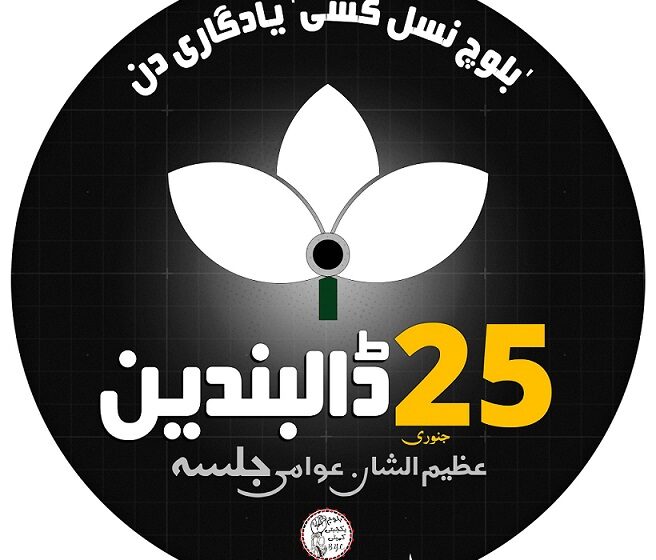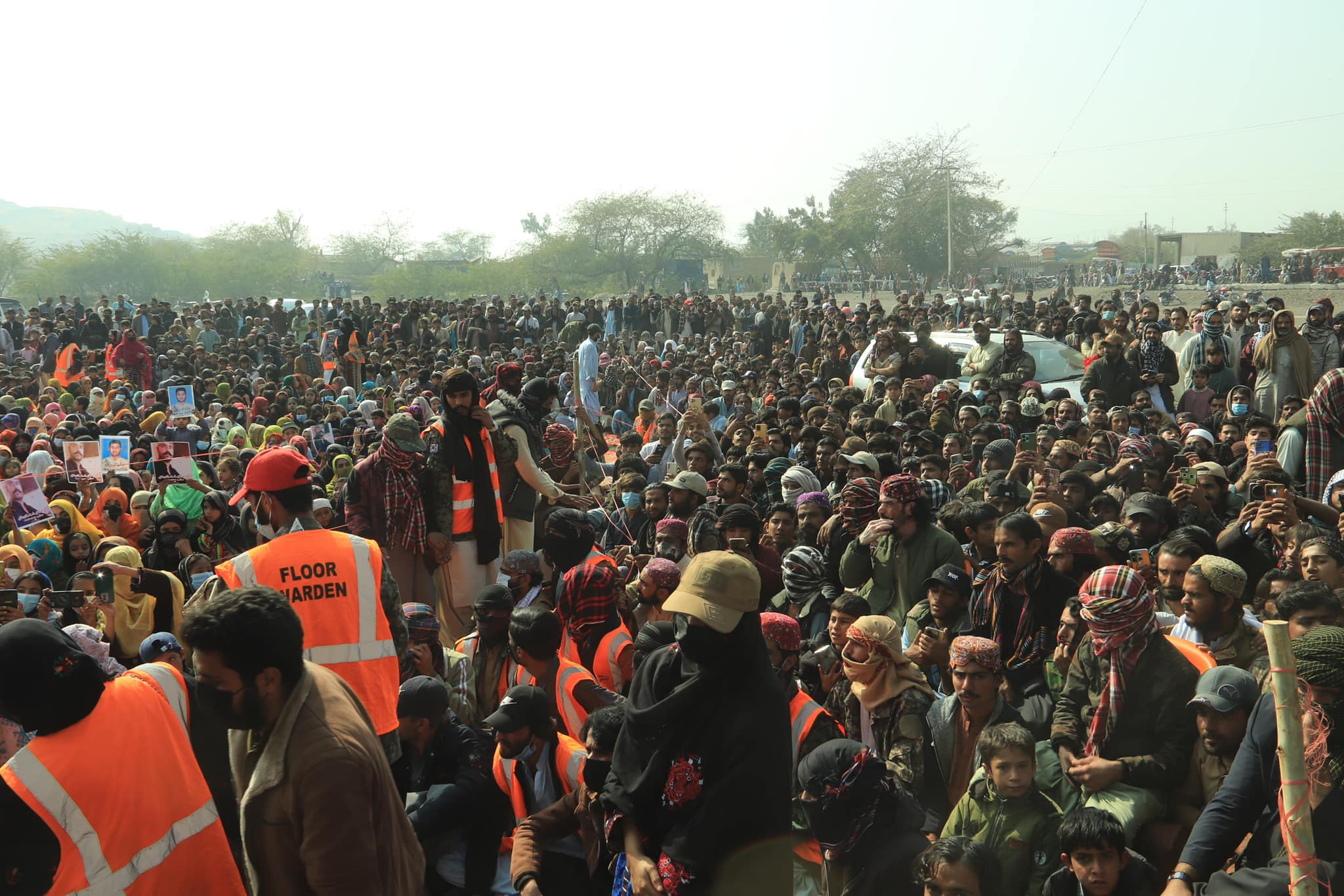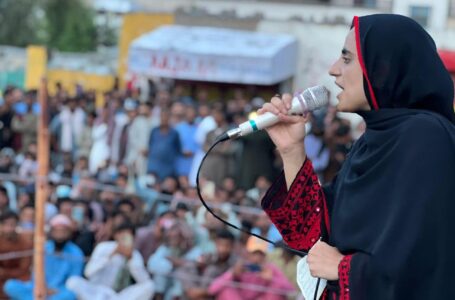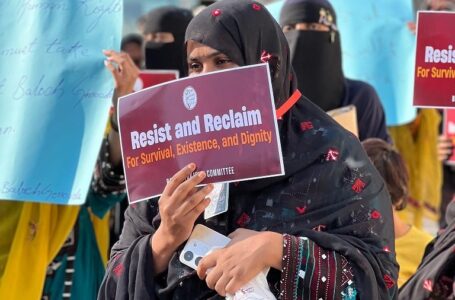FBM Holds Simultaneous Protests Against Pakistan’s Nuclear Tests on Baloch Land
Balochistan: Preparations Underway for Raaji Muchi in Dalbandin

QUETTA: The Baloch Yakjehti Committee (BYC) has announced that the second “Baloch Raaji Muchi,” a public gathering aimed at commemorating the Baloch Genocide, will take place on 25 January 2025 in Dalbandin, Balochistan. The BYC has also declared this date as the “Baloch Genocide Remembrance Day,” urging the Baloch nation to unite and observe the occasion in honour of those affected by years of oppression.
In recent weeks, the BYC has organised large public rallies and awareness gatherings in various cities across Balochistan, including Kech regions, Quetta, Kalat, Mastung, Surab, Bolan, Sibi, and Naseerabad. These events have served as platforms to invite people to attend the upcoming Raaji Muchi in Dalbandin. Organisers have called on the Baloch people to join the gathering and commemorate the victims of the ongoing Baloch genocide.
 “The Baloch people have suffered for too long, and it is important for us to remember and honour those who have lost their lives in the struggle for justice and freedom,” said a spokesperson for the Baloch Yakjehti Committee. “We invite all Baloch to unite on this significant day and show the world that we will never forget the atrocities committed against our people.”
“The Baloch people have suffered for too long, and it is important for us to remember and honour those who have lost their lives in the struggle for justice and freedom,” said a spokesperson for the Baloch Yakjehti Committee. “We invite all Baloch to unite on this significant day and show the world that we will never forget the atrocities committed against our people.”
Meanwhile, the provincial government, under pressure from the Pakistan military, has taken significant steps to prevent or disrupt the gathering. In a move that many view as an attempt to suppress the event, the government has imposed Section 144 in several areas of Balochistan, including Dalbandin, effectively banning large public gatherings and assemblies.
Furthermore, the provincial authorities have reportedly instructed transport operators in Dalbandin and surrounding areas to halt services for at least a week, preventing people from travelling to the event. Baloch activists fear that the government’s actions are aimed at minimising attendance and preventing the Raaji Muchi from taking place altogether.
The imposition of Section 144 has sparked criticism from Baloch leaders and human rights groups, who view the measure as an infringement on freedom of assembly and expression, calling them a “direct attempt to silence the voices of the oppressed Baloch people.”
Dr. Mahrang Baloch, the leader of the Baloch Yakjehti Committee, along with other BYC leaders, participated in and addressed most of these public gatherings.
She stated that there was no area in Balochistan where the Baloch people could live freely. “The Baloch nation is being enslaved and displaced, and the bodies of our people are being found. Our brothers are being abducted from their homes, tortured inhumanely, mutilated, and dumped in desolate areas,” she said.
She added that the state is looting the resources of the Baloch nation and providing free education, healthcare and other facilities in Punjab, while the Baloch people are being subjected to genocide by placing them in military camps and abducting them extra-judicially.
“Around the world, freedom of speech and peaceful assembly are considered public rights, but for the Baloch, restrictions have been imposed on their freedom of expression, thought, writing, and speech.”
During the public gatherings, family members of missing persons often spoke about their ordeals of waiting in vain for the return of their loved ones. Several relatives have received the bodies of their loved ones, while others have been deprived of even this privilege. They continue to demand the recovery of their loved ones.
The family members of enforced disappearances say their loved ones were forcibly abducted after being tortured in their homes and have been missing ever since. “If there are any charges against them, they should be presented in court,” they urged.
Despite restrictions imposed by Pakistani forces, thousands of people, including women, children, and the elderly, have participated in public gatherings to share their stories of pain and suffering with the world.
In their messages, the BYC leadership appealed to the Baloch people of Balochistan to unite and become part of the Baloch cause, as Baloch unity is the need of the hour. “The Baloch nation must become part of Baloch politics and rise for the recovery of their loved ones and to honour the blood of their martyrs, whose message is written in their blood,” Dr. Mahrang Baloch said.
They urged the people to make every possible effort to participate in the Raaji Muchi on 25 January to express their opposition to state brutality, atrocities, and the ongoing genocide of the Baloch nation.
The BYC leadership has also frequently spoken about the Iranian state’s brutalities against the Baloch people in Iranian-occupied Balochistan, calling for Baloch unity and stressing that no matter where the Baloch reside, they share the common pain and must rise against the oppression, atrocities, and genocide faced by their people from oppressive states.
As the date for the Raaji Muchi approaches, all eyes are on Dalbandin, where the BYC’s call for remembrance and solidarity will meet the government’s efforts to stifle public dissent. Baloch activists continue to call for international attention to the situation in Balochistan, hoping that global solidarity will help ensure the protection of their rights and bring attention to the ongoing plight and genocide of Baloch people.










